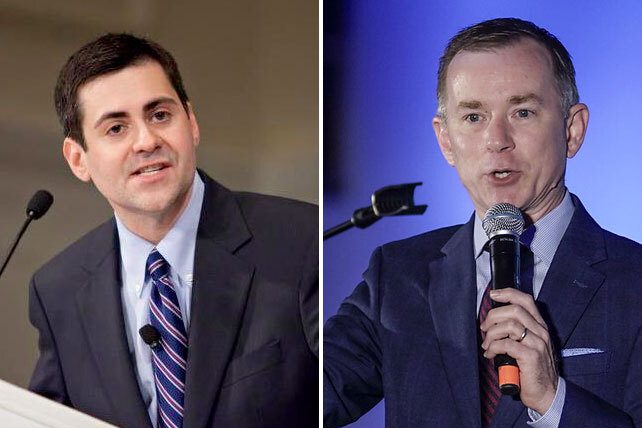My love for Scripture is matched only by my love for Jesus, and the love of one is the expression of my love for the other. Everything I aspire to be as a husband is because of what the Bible calls me to be. And since Jesus was never married, I have to take the bulk of my instruction as a biblical husband from the other words of Scripture, which I take to be as authoritative as the “red letters” of Jesus.
What I’ve found is that when I rightfully understand and seek to submit to all that God’s Word calls me to be and do as a husband, I don’t have any time left over to wonder if my wife is holding up “her” verses.
A Biblical Husband
1. Never makes his wife’s life bitter
Colossians 3:19 says, “Husbands, love your wives and never treat them harshly.” The word “love” is in present tense, meaning unceasing and ongoing action, while the language for “treating your wife harshly” is in the aorist tense, meaning a one-time occurrence. In this context that means when it comes to a husband being harsh with his wife, Paul’s policy is Not. Even. Once. You don’t get to treat your wife harshly when you’re tired, frustrated, or it’s at the end of a long day and you’re not getting what you want out of life or marriage. A paraphrase for Paul’s advice to husbands would be, “always love, never be harsh.”
Another translation for harsh, by the way, is anything that “makes her life bitter.” If I believe the Bible, I should never do anything that makes my wife’s life bitter. If leaving my socks on the floor bothers her, I should pick them up. If a tone of voice makes her feel talked down to, I must stop using that tone of voice. And of course, this verse absolutely rejects any notion of physical harm, verbal abuse, or even threats.
A biblical husband always loves and is never harsh.
2. Provides for his family
1 Timothy 5:8 says, “But if anyone does not provide for his relatives, and especially for members of his household, he has denied the faith and is worse than an unbeliever.” Those husbands who play video games at home while their wives work two jobs? They’re not “biblical husbands.”
I understand the desire men have to pursue their dreams vocationally. I don’t think this verse objects to a wife working full-time while her husband is in school—that’s preparing to provide and it’s work (even though you may not be getting paid for it). This admonition also doesn’t negate the wife also working, especially since Proverbs 31 refers to an income earning wife. It does negate the thought of a husband who is able to work not working out of selfishness or laziness.
This verse challenged me when I was a young husband desperate to become a writer and married a woman who was desperate to be a full-time stay-at-home mom. I had to work a full-time job (and for a spell another part-time job added on) for fifteen years and write on the side before I could write full-time, which is partly what turned me into an early morning person (it was the only time I could pursue my dream). So men, I get wanting to pursue a dream. It’s the story of my life. I don’t get making your wife and children suffer so you can pursue your dream. Wanting to be a “biblical” husband, I didn’t see that as an option.
A biblical husband works hard to provide for his family.
3. Treats his wife with respect
1 Peter 3:7 tells me that if I don’t respect my wife, God won’t hear my prayers: “Husbands, in the same way be considerate as you live with your wives, and treat them with respect…so that nothing will hinder your prayers.” It’s therefore impossible for me to imagine that I could be a Christian in good standing if I fail to respect my wife. Respect begins with my language—I’m never to be condescending, nor hurtful, nor threatening. Respect includes making life choices with my wife’s welfare at the top of my concern. Respect means I also listen to her, value her opinion, and don’t talk her down to others. Respect doesn’t mean I always agree with her or always do what she wants me to do but it also means I don’t expect her to always agree with me or always do what I want her to do.
A biblical husband respects his wife.
4. Takes initiative
Male chauvinism and domineering control have been a problem for all of human history, but in society’s attempt to dismantle this sin the opposite sin—male passivity—often gets overlooked. That’s the devil’s trap: if he knows he’s losing his grip on tempting the church with one sin, he’ll try to get the church to fall head-first into the opposite sin. Truth isn’t found by reacting to evil; it’s found by responding to Christ and His Word.
If you take the Bible seriously, a husband’s love is an initiating love. When the Bible tells men to love their wives like Christ loves the church (Eph. 5:22ff), it’s calling us to an initiating, reaching-out love. Christ adopted the breathtaking plan of becoming flesh to get His message across to us—a bold, audacious and one-sided move. He willingly laid down His life to deal with our sin when we didn’t deserve it. He is the most active figure in history, and He continues to be so when He says, “I will build my church” (Matt. 16:18). He hasn’t built but is building His church. A biblical husband is an active husband, expending much energy and thought over how to build up his wife. He’s not primarily thinking about how or whether she is serving Him; he’s focused on what He can do for her.
A biblical husband is an initiating husband.
5. Speaks life to his wife
Proverbs 18:21 warns us, “The tongue has the power of life and death.” We husbands are therefore called to choose every word—every single one—carefully: “I tell you, on the Day of Judgment people will give account for every careless word they speak,for by your words you will be justified, and by your words you will be condemned.” (Matt. 12:36-37)
This includes words when we’re tired, angry, frustrated, hurt or disappointed. The Bible moves us to make every word breathe life into our wives and marriages.
A biblical husband uses his tongue to nurture, never to hurt.


















